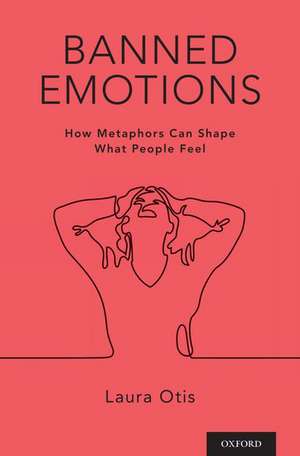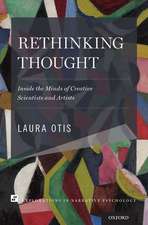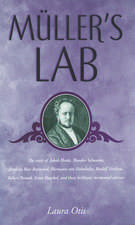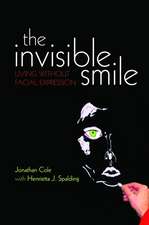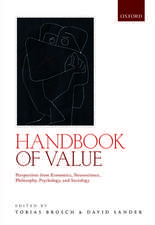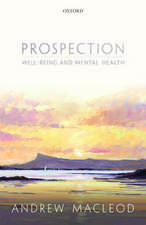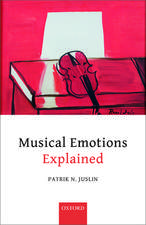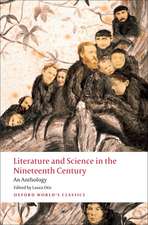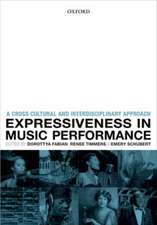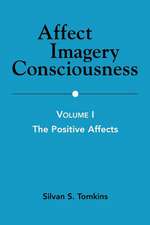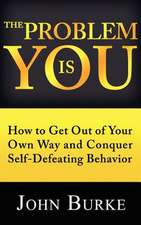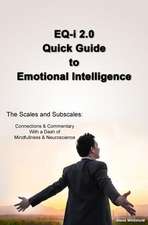Banned Emotions: How Metaphors Can Shape What People Feel
Autor Laura Otisen Limba Engleză Hardback – 9 mai 2019
Preț: 344.98 lei
Preț vechi: 441.96 lei
-22% Nou
Puncte Express: 517
Preț estimativ în valută:
66.02€ • 68.67$ • 54.50£
66.02€ • 68.67$ • 54.50£
Carte disponibilă
Livrare economică 14-20 martie
Preluare comenzi: 021 569.72.76
Specificații
ISBN-13: 9780190698904
ISBN-10: 019069890X
Pagini: 200
Dimensiuni: 236 x 163 x 23 mm
Greutate: 0.41 kg
Editura: Oxford University Press
Colecția OUP USA
Locul publicării:New York, United States
ISBN-10: 019069890X
Pagini: 200
Dimensiuni: 236 x 163 x 23 mm
Greutate: 0.41 kg
Editura: Oxford University Press
Colecția OUP USA
Locul publicării:New York, United States
Recenzii
"Otis brings her training as a neuroscientist and literary scholar to the study of the influence that metaphors have on the experience and understanding of what she calls "banned emotions," those emotions considered harmful to the person who possesses them, others nearby, and society at large. Beginning with an extraordinarily lucid examination of the metaphors employed by or hidden in the theories of classic and modern students of emotion, she shows how emotions are seen as "hijacking reason," "impeding our forward movement," and "spreading like diseases." She draws her analysis to a close with a wonderfully enlightening consideration of the metaphors of emotion regulation in which she reveals the gendered, political, economic, and religious roots of such metaphors, more than a few of which target various forms of inequality and the imperatives of social justice. Outstanding."
An overwhelmed freshman tells me that she feels that she ought not to dump her emotions on others, and I realize for the first time, with shock, what view of human interiority this metaphor implies. This is what Laura Otiss powerful new book does to you. It stops you in your tracks, making you aware of how metaphors that we casually use to describe various unloved emotions, shape our self-perception, daily interactions, the novels that we read and the movies that we watch. It takes a scholar of Otiss brilliance and wide-ranging interdisciplinary expertise to bring together cognitive science and literary and film criticism in ways that can change how we think and live.
An overwhelmed freshman tells me that she feels that she ought not to dump her emotions on others, and I realize for the first time, with shock, what view of human interiority this metaphor implies. This is what Laura Otiss powerful new book does to you. It stops you in your tracks, making you aware of how metaphors that we casually use to describe various unloved emotions, shape our self-perception, daily interactions, the novels that we read and the movies that we watch. It takes a scholar of Otiss brilliance and wide-ranging interdisciplinary expertise to bring together cognitive science and literary and film criticism in ways that can change how we think and live.
Notă biografică
Laura Otis is a Professor of English at Emory University. With an MA in Neuroscience, a PhD in Comparative Literature, and an MFA in Fiction, she compares the creative thinking of scientists and literary writers. Otis, a MacArthur Fellow, is the author of Organic Memory, Membranes, Networking, Müller's Lab, and Rethinking Thought.
